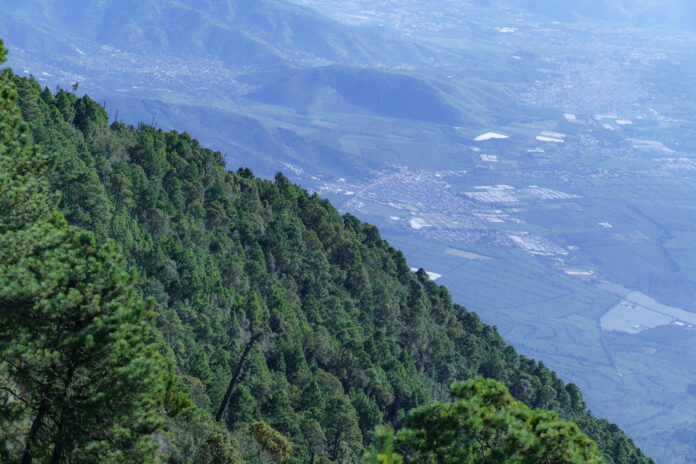Deforestation in tropical rainforests is a critical environmental issue that has far-reaching consequences for the planet. These lush ecosystems, often referred to as the “lungs of the Earth,” play a vital role in maintaining global biodiversity, regulating climate, and supporting the livelihoods of millions of people. However, the relentless clearing of these forests for agriculture, logging, and other human activities is causing unprecedented ecological damage.
The Scope and Scale of Deforestation in Tropical Rainforests
Tropical rainforests, which span regions in South America, Africa, and Southeast Asia, are experiencing deforestation at an alarming rate. Estimates suggest that millions of hectares of these forests are lost each year, with significant portions of this deforestation occurring in the Amazon Basin, the Congo Basin, and the rainforests of Indonesia. The primary drivers of this deforestation include agricultural expansion, particularly for crops like soy and palm oil, cattle ranching, logging, and infrastructure development. The scale of deforestation varies by region, but the overall trend is one of rapid and extensive forest loss.
The impact of deforestation is not uniform across tropical rainforests. In some areas, large-scale clear-cutting results in the complete removal of forest cover, while in others, selective logging and small-scale agricultural activities lead to gradual forest degradation. Despite these differences, the cumulative effect is a significant reduction in forest area and fragmentation of remaining forest patches. This fragmentation isolates wildlife populations, disrupts ecological processes, and diminishes the ability of forests to provide essential ecosystem services.
Satellite imagery and remote sensing technologies have been instrumental in monitoring deforestation trends, providing valuable data on the extent and rate of forest loss. These tools have revealed that deforestation is not only a local issue but a global concern, with implications for biodiversity, climate regulation, and human well-being. As deforestation continues unabated, the need for effective monitoring and intervention becomes increasingly urgent.
Key Ecological Consequences of Deforestation
One of the most immediate and visible consequences of deforestation is the loss of biodiversity. Tropical rainforests are home to an estimated 50% of the world’s terrestrial species, many of which are endemic and cannot be found anywhere else. The destruction of these habitats leads to the displacement and extinction of countless plant and animal species, disrupting intricate ecological networks and diminishing genetic diversity. This biodiversity loss has cascading effects on ecosystem stability and resilience, making it more difficult for these systems to recover from disturbances.
Deforestation also significantly impacts the global carbon cycle. Tropical rainforests act as major carbon sinks, sequestering large amounts of carbon dioxide from the atmosphere. When these forests are cleared, the stored carbon is released back into the atmosphere, contributing to greenhouse gas emissions and exacerbating climate change. This release of carbon not only accelerates global warming but also undermines efforts to mitigate climate change through natural carbon sequestration. Additionally, the loss of forest cover reduces the Earth’s capacity to absorb future carbon emissions, creating a feedback loop that further intensifies climate change.
Water cycles and soil health are also adversely affected by deforestation. Forests play a crucial role in regulating hydrological cycles by maintaining soil moisture, influencing precipitation patterns, and preventing erosion. The removal of trees disrupts these processes, leading to altered rainfall patterns, increased runoff, and soil degradation. This, in turn, affects agricultural productivity, water quality, and the availability of freshwater resources. The degradation of soil and water systems can have long-term consequences for both local communities and broader ecological systems.
Mitigation Strategies and Conservation Efforts
Addressing deforestation in tropical rainforests requires a multifaceted approach that combines policy interventions, community engagement, and technological innovations. One of the most effective strategies is the establishment and enforcement of protected areas. These areas can help preserve critical habitats, safeguard biodiversity, and maintain ecosystem services. However, the success of protected areas depends on adequate funding, effective management, and the support of local communities. Collaborative efforts that involve indigenous peoples and local stakeholders are crucial for ensuring the sustainability and effectiveness of conservation initiatives.
Sustainable land-use practices offer another avenue for mitigating deforestation. Agroforestry, for example, integrates trees into agricultural landscapes, providing economic benefits while maintaining ecological functions. Sustainable logging practices, such as reduced-impact logging, can minimize environmental damage and promote forest regeneration. Additionally, promoting alternative livelihoods that do not rely on forest clearance, such as ecotourism or non-timber forest products, can reduce the pressure on forests and provide economic incentives for conservation.
Technological advancements also play a vital role in combating deforestation. Remote sensing and satellite monitoring enable real-time tracking of forest cover changes, allowing for timely interventions and improved enforcement of anti-deforestation policies. Furthermore, initiatives that promote transparency and traceability in supply chains can help reduce the demand for products linked to deforestation. By ensuring that commodities like palm oil, soy, and timber are sourced sustainably, consumers and businesses can contribute to the preservation of tropical rainforests.
The ecological impacts of deforestation in tropical rainforests are profound and multifaceted, affecting biodiversity, climate, and ecosystem services. Addressing this issue requires a comprehensive approach that combines conservation efforts, sustainable practices, and technological innovations. By understanding the scope and scale of deforestation and its consequences, and by implementing effective mitigation strategies, we can work towards preserving these vital ecosystems for future generations.
